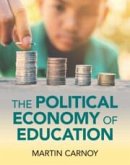Corruption continues despite abundant government legislation, public protests, and an overwhelming consensus that it threatens modern liberal institutions, hard-earned global prosperity, human rights, and justice. While we understand corruption better than the ancients, the puzzle of why it remains a timeless societal vice remains unsolved. This book addresses that puzzle by challenging assumptions about individual behavior and bureaucratic design. It analyzes corruption in three of India's major state bureaucracies. The book argues that corruption is organized into grand and petty forms, rather than being uniform. Several markets for grand and petty corruption exist within bureaucracies, linked to and driven by the market for grand corruption in bureaucratic transfers controlled by politicians. The nature, strength, and stability of these linkages explain the persistence of corruption and why top-down approaches fail. The book offers an original account of corruption's 'sticky' nature and proposes an agenda for reform.
Bitte wählen Sie Ihr Anliegen aus.
Rechnungen
Retourenschein anfordern
Bestellstatus
Storno








